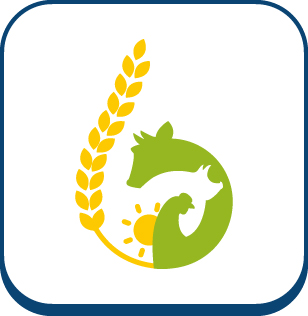Utilisation of soybean meal in reduced pig diets through the formulation of low crude protein diets based on rapeseed mela and synthetic amino acids
Ajouter à ma liste
Auteurs :
Quiniou N, Primot Y, Peyronnet C, Quinsac A
One hundred forty-four group-housed growing-finishing pigs were allocated to one of the three experimental feeding strategies.Diets S were formulated with soybean meal and their dietary crude protein (CP) content averaged 15.9 and 15.0%, respectively during the growing and the finishing periods. In diets C, CP levels were reduced at 15.0 and 14.1%, respectively, and soybean meal was replaced partially or completely by rapeseed meal and balanced with L-Lysine, DL-Methionine, L-Threonine and L-Tryptophan. In diets CV, L-Valine was also incorporated (0.3 g/kg) allowing an additional reduction of CP content (14.5 and 13.2%, respectively). All diets were formulated on the same net energy basis (9.7 MJ NE/kg) and on minimum ratios between digestible lysine and other amino acids following the ideal protein profile. Over the 27-111 kg BW range, no significant differences were observed between treatments on average daily gain, feed intake, feed conversion ratio or carcass fatness. These results indicate that it is possible to replace soybean meal by rapeseed meal in association with available free amino acids for a long time without any consequence on growth performance. They also show that an additional reduction of dietary CP content can be achieved with L-Valine utilisation without any consequence on growth performance, when diets are formulated on the NE basis and in agreement with the ideal protein concept. Reduced dietary CP performed through the C and CV strategies were associated with a reduction of N output by 400 and 650 g /pig, respectively.
Fiche technique
Titre :
Utilisation of soybean meal in reduced pig diets through the formulation of low crude protein diets based on rapeseed mela and synthetic amino acids
Date sortie / parution :
2011
Référence :
Techni Porc (FRA), 2011, Vol. 34, n° 3, mai-juin, p. 13-16
Auteur
Quelques mots clés
Autres documents
Des aliments pour porcs moins riches en protéines et en tourteau de soja fabriqués à base de tourteau de colza et d'acides aminés
Trois stratégies de formulation sont appliquées à une bande de 144 porcs en croissance. Les aliments S sont à base de tourteau de soja et ont une teneur en MAT…
Publié en 2011







